Training for Progress, Not Burnout: The Art of Managing Stress in Fitness
- Constantino Díaz Mantás
- May 28
- 2 min read
When most people think of training, they often picture hard work, sweat, and pushing limits. And while effort is an essential part of progress, it’s not the whole picture. The true purpose of training is improvement—not breakdown. To understand how to train effectively, we must first understand a simple but powerful concept: training is stress.
Stress Isn’t the Enemy—Poorly Managed Stress Is
Every time we train—whether it's lifting weights, running intervals, or practicing a sport—we're applying stress to the body. This stress, when applied correctly, stimulates adaptation: stronger muscles, improved endurance, better technique. But stress is a double-edged sword. When over-applied or under-recovered, it stops being helpful and becomes harmful.
This is where the distinction between eustress and distress becomes important.
Eustress is positive stress—it's the kind that challenges you just enough to grow.
Distress is negative stress—it overwhelms your system and leads to fatigue, injury, or burnout.
The Coach’s Role: Stress Manager
At its core, effective coaching is stress management. It’s about finding the right balance of challenge and recovery. Too little stress and the athlete stagnates. Too much stress without adequate recovery, and performance declines or injury occurs.
A good training program doesn’t just push—it pulls back strategically. It includes rest days, deload weeks, and recovery strategies. These aren’t signs of weakness; they are essential components of progress.
Load, Dose, and Recovery
Think of training like medication. The right dose at the right time has therapeutic effects. The wrong dose, or too much of it, becomes toxic.
Key principles to remember:
Load must match the athlete’s capacity. Everyone has a different threshold for physical and mental stress.
Recovery is non-negotiable. Sleep, nutrition, and rest aren’t luxuries—they’re training tools.
Adaptation happens between sessions, not during. Training provides the stimulus. Rest is where the magic happens.
Train Smarter, Not Just Harder
In a culture that glorifies hustle and grinding through pain, it's easy to fall into the trap of thinking more is better. But elite performance isn’t about who suffers the most—it’s about who can sustain consistent, high-quality work over time.
Training to improve means respecting your limits, listening to your body, and working with stress, not against it. It means being patient, strategic, and smart.







Comments